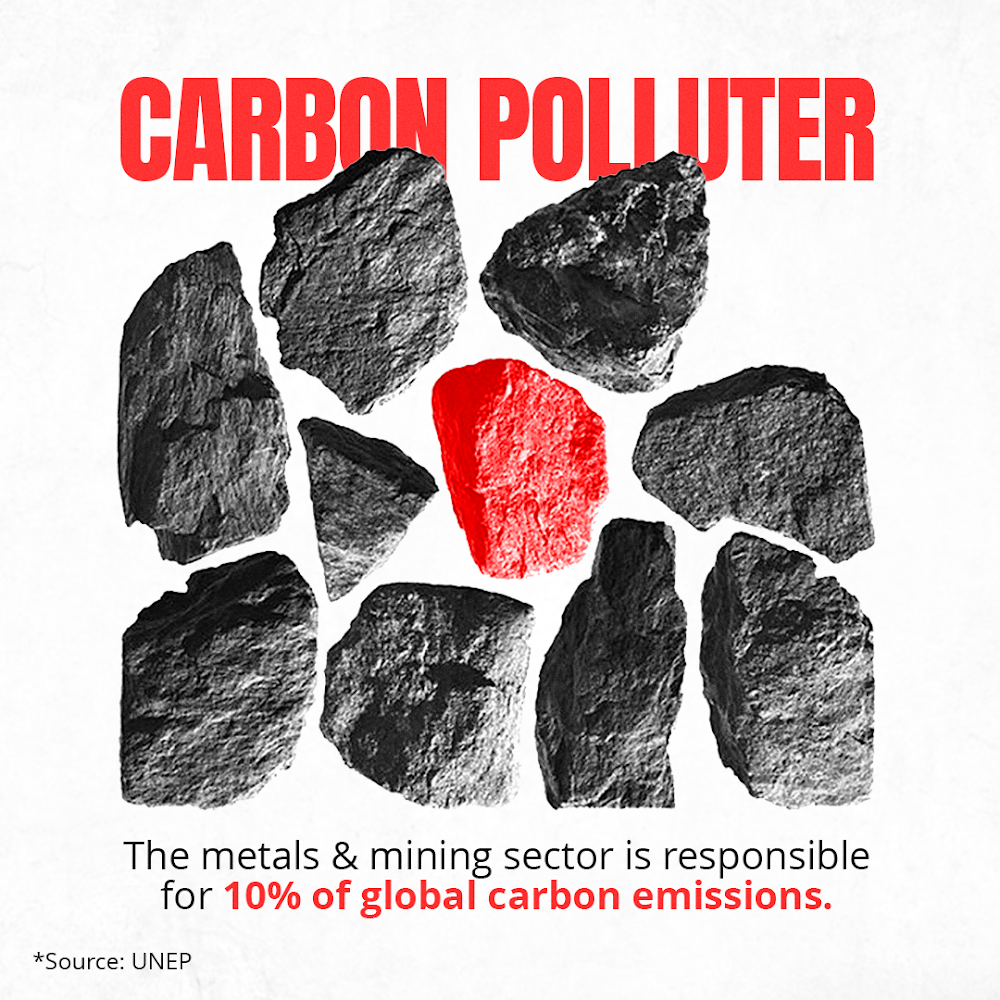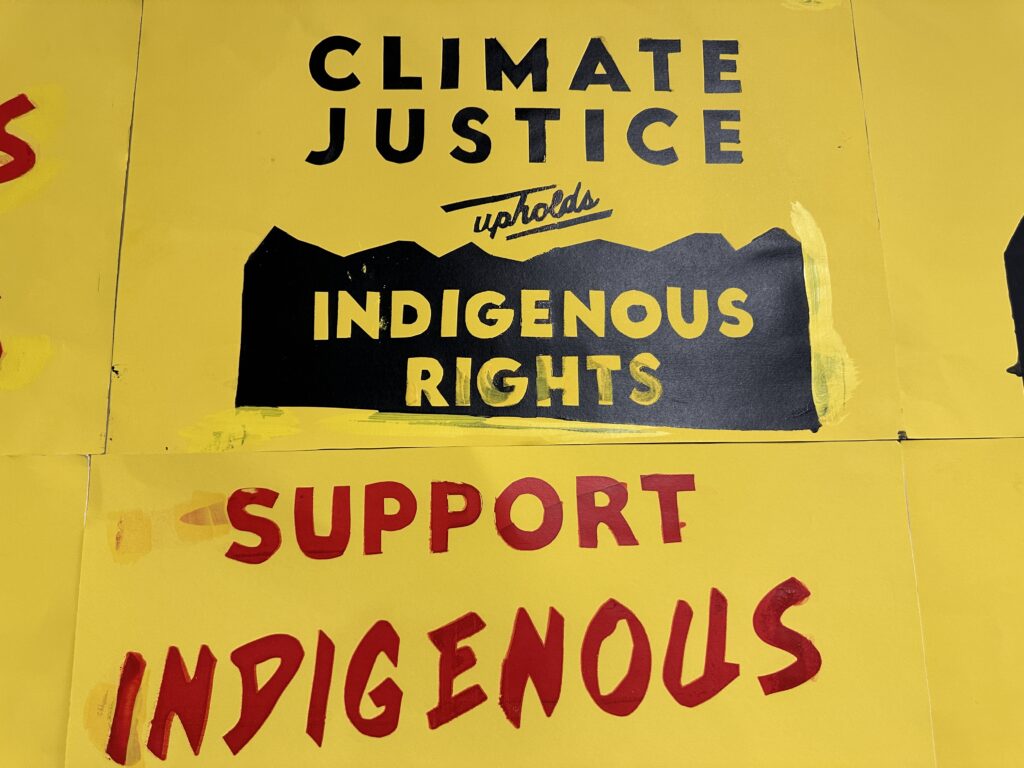Today’s conference themes revolved around the experience of Indigenous communities, often those on the frontlines of the devastating impact of extraction and, ultimately, climate change. Indigenous groups brought compelling stories of their experiences and demands for more recognition and attention to events across Expo City and directly to negotiators.
Quote of the day: As the Executive Director of Cultural Survival Galina Angarova put it, “A lot of Indigenous Leaders are confined to very certain spaces… it’s hard to accept because we need to exercise our rights and be in spaces where those decisions are being made right now, and I don’t think it’s happening.”
So today, it’s only fitting that we turn our attention to critical issues around mining (and, of course, mining’s impact on Indigenous Peoples). Fossil fuel extraction tends to get most of the attention–it’s the issue most people are familiar with, yet the impact of dirting mining practices and mineral extraction is crucial to tackling to avoid replacing one dirty, exploitative practice with another.
In short, here’s the BIG issue. We need to phase out fossil fuel use fast. In order to do so, we need to scale up clean energy and renewables, and here is where mining comes in.

The current lifecycle of renewable energy technology begins with industrial mining for minerals. It generates toxic waste, often violates human rights through displacement, conflict, and lack of consultation, pollutes freshwater, and threatens ocean health through the risky practice of mine waste dumping and deep-sea mining. Mining for these minerals will happen in various places, but primarily on or near Indigenous Peoples’ lands. Worse yet, the mining industry that is set to extract these minerals also
- (1) produces significant fossil fuel emissions,
- (2) often creates unsafe working conditions, and
- (3) regularly violates the rights and lands of Indigenous Peoples.
Takeaway: Many mining-focused discussions today centered on justice in the transition. That means not accepting the dirty mining practices of yesterday and today. More importantly, it means people having the power to make decisions about their own lives and land through Free, Prior, and Informed Consent (FPIC) – and, without question, for more Indigenous People to have seats at the table to speak and be heard.
Best Fact to know: Indigenous People make up only 5% of the global population. They account for 15% of the global extremely poor. But they protect 80% of the world’s remaining biodiversity (source). It’s long past time to center them and their wisdom in climate and energy transition conversations.
Not forgetting the phase-out fight. Yesterday, we highlighted a Guardian story reporting that Dr. Sultan Al Jaber said phase-out demands are backed up by “no science.” Well, that caused a stir. In reaction, Al Gore said of the COP28 President and the oil & gas industry that “they’re much better at capturing politicians than they are at capturing emissions.”
Al Jaber pulled together what the NYTimes described as a “hastily arranged news conference.” What he said surprised many: “I have said repeatedly that the phase-down and the phaseout of fossil fuels is inevitable.”
So… has progress been made? We will see.
Stay tuned!

